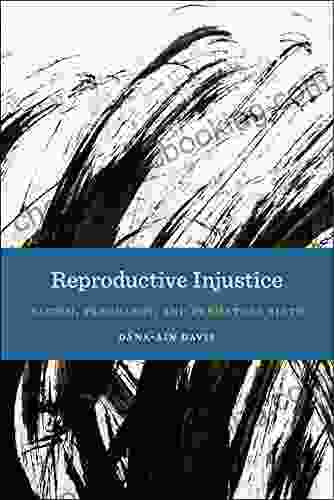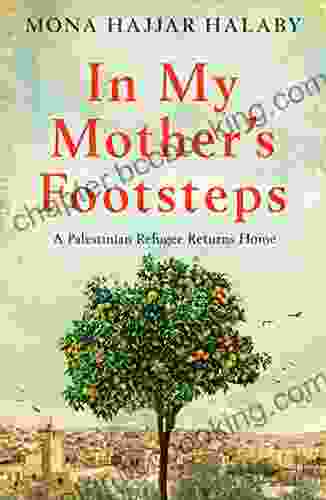Culture, Power, and Practice: Unlocking the Transformative Potential of Human Interactions

Culture is the invisible force that shapes our lives. It influences the way we think, feel, and behave. It determines our values, beliefs, and norms. Culture is so deeply ingrained in us that we often take it for granted. But once we start to examine it, we realize just how powerful it is.
4.9 out of 5
| Language | : | English |
| File size | : | 1463 KB |
| Text-to-Speech | : | Enabled |
| Screen Reader | : | Supported |
| Enhanced typesetting | : | Enabled |
| Word Wise | : | Enabled |
| Print length | : | 267 pages |
Culture is not static. It is constantly evolving, as we interact with new people and ideas. This process of cultural exchange can be both enriching and challenging. It can lead to new insights and understanding, but it can also lead to conflict and misunderstanding.
The key to harnessing the transformative power of culture is to understand how it works. In this book, we will explore the relationship between culture, power, and practice. We will examine how culture shapes our interactions with others, and how power can be used to both promote and suppress cultural change.
Culture and Power
Culture is a powerful force that can be used to shape human behavior. It can be used to promote social harmony and cooperation, or it can be used to justify violence and oppression. The way that culture is used depends on the power dynamics that exist in a society.
In societies where power is concentrated in the hands of a few, culture is often used to legitimize their authority. The ruling class uses culture to promote values that support their own interests, and to suppress values that challenge their power.
In more egalitarian societies, culture is more likely to be used to promote social harmony and cooperation. This is because in these societies, power is more evenly distributed, and there is less need to use culture to justify the authority of the ruling class.
Culture and Practice
Culture is not just about ideas and beliefs. It is also about practices. The way that we interact with each other, the way that we work, and the way that we play are all influenced by our culture.
Cultural practices can be both positive and negative. Some cultural practices promote health, well-being, and social harmony. Other cultural practices can be harmful or even deadly.
The key to understanding the relationship between culture and practice is to recognize that culture is not a fixed or unchanging thing. It is constantly evolving, as we interact with new people and ideas. This means that we can change our culture by changing our practices.
The Transformative Power of Culture
Culture has the power to transform our lives. It can change the way that we think, feel, and behave. It can lead us to new insights and understanding, and it can help us to build a more just and harmonious world.
The transformative power of culture is not always easy to harness. But it is a power that is worth striving for. By understanding the relationship between culture, power, and practice, we can learn to use culture to create a better world for ourselves and for future generations.
Culture is a powerful force that can be used to shape human behavior. It can be used to promote social harmony and cooperation, or it can be used to justify violence and oppression. The way that culture is used depends on the power dynamics that exist in a society.
In societies where power is concentrated in the hands of a few, culture is often used to legitimize their authority. The ruling class uses culture to promote values that support their own interests, and to suppress values that challenge their power.
In more egalitarian societies, culture is more likely to be used to promote social harmony and cooperation. This is because in these societies, power is more evenly distributed, and there is less need to use culture to justify the authority of the ruling class.
Culture is not just about ideas and beliefs. It is also about practices. The way that we interact with each other, the way that we work, and the way that we play are all influenced by our culture.
Cultural practices can be both positive and negative. Some cultural practices promote health, well-being, and social harmony. Other cultural practices can be harmful or even deadly.
The key to understanding the relationship between culture and practice is to recognize that culture is not a fixed or unchanging thing. It is constantly evolving, as we interact with new people and ideas. This means that we can change our culture by changing our practices.
Culture has the power to transform our lives. It can change the way that we think, feel, and behave. It can lead us to new insights and understanding, and it can help us to build a more just and harmonious world.
The transformative power of culture is not always easy to harness. But it is a power that is worth striving for. By understanding the relationship between culture, power, and practice, we can learn to use culture to create a better world for ourselves and for future generations.
4.9 out of 5
| Language | : | English |
| File size | : | 1463 KB |
| Text-to-Speech | : | Enabled |
| Screen Reader | : | Supported |
| Enhanced typesetting | : | Enabled |
| Word Wise | : | Enabled |
| Print length | : | 267 pages |
Do you want to contribute by writing guest posts on this blog?
Please contact us and send us a resume of previous articles that you have written.
 Book
Book Novel
Novel Page
Page Chapter
Chapter Text
Text Story
Story Genre
Genre Reader
Reader Library
Library Paperback
Paperback E-book
E-book Magazine
Magazine Newspaper
Newspaper Paragraph
Paragraph Sentence
Sentence Bookmark
Bookmark Shelf
Shelf Glossary
Glossary Bibliography
Bibliography Foreword
Foreword Preface
Preface Synopsis
Synopsis Annotation
Annotation Footnote
Footnote Manuscript
Manuscript Scroll
Scroll Codex
Codex Tome
Tome Bestseller
Bestseller Classics
Classics Library card
Library card Narrative
Narrative Biography
Biography Autobiography
Autobiography Memoir
Memoir Reference
Reference Encyclopedia
Encyclopedia Michael Cosgrove
Michael Cosgrove Steve Stevenson
Steve Stevenson Ross Bonander
Ross Bonander Nelson Lee
Nelson Lee Molly Mccully Brown
Molly Mccully Brown Pero Tafur
Pero Tafur Nicolaus Sombart
Nicolaus Sombart Robert Evans
Robert Evans Mina Lebitz
Mina Lebitz Morgan Rogers
Morgan Rogers Simi Mary
Simi Mary Tony Rican
Tony Rican Neil Bimbeau
Neil Bimbeau Nick Loper
Nick Loper Misty Copeland
Misty Copeland Nancy Marie Brown
Nancy Marie Brown Sean Hepburn Ferrer
Sean Hepburn Ferrer Michael B Miller
Michael B Miller Michele Cagan
Michele Cagan Pete Sampras
Pete Sampras
Light bulbAdvertise smarter! Our strategic ad space ensures maximum exposure. Reserve your spot today!
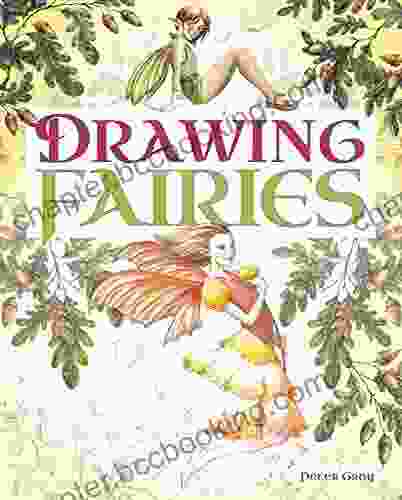
 Alexandre DumasEscape into a Realm of Enchantment: Explore the Serene World of Peter Gray's...
Alexandre DumasEscape into a Realm of Enchantment: Explore the Serene World of Peter Gray's...
 Noah BlairUnlocking Social Success: A Comprehensive Guide to Social Skills Training for...
Noah BlairUnlocking Social Success: A Comprehensive Guide to Social Skills Training for...
 Walt WhitmanUnveiling the Secrets: A Comprehensive Review of 'Hollow Point: The Silencer'
Walt WhitmanUnveiling the Secrets: A Comprehensive Review of 'Hollow Point: The Silencer' Edison MitchellFollow ·19.2k
Edison MitchellFollow ·19.2k Jared PowellFollow ·18.2k
Jared PowellFollow ·18.2k Gage HayesFollow ·14.6k
Gage HayesFollow ·14.6k Arthur MasonFollow ·8.8k
Arthur MasonFollow ·8.8k Johnny TurnerFollow ·10k
Johnny TurnerFollow ·10k Cade SimmonsFollow ·10.7k
Cade SimmonsFollow ·10.7k Earl WilliamsFollow ·6.9k
Earl WilliamsFollow ·6.9k Gil TurnerFollow ·15.6k
Gil TurnerFollow ·15.6k
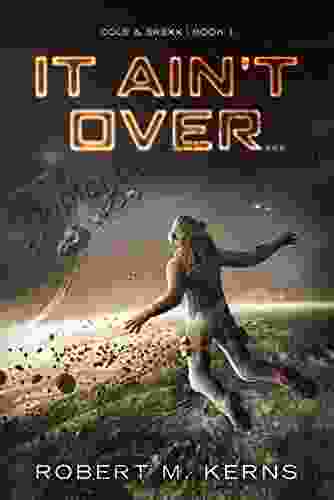
 Trevor Bell
Trevor BellUncover the Thrilling Mystery in "It Ain't Over, Cole...
Prepare yourself...

 Garrett Bell
Garrett BellHow to Stay True to Yourself and Stand Out From the Crowd
In a world that...

 Dennis Hayes
Dennis HayesDrill Instructor Strategies And Tactics For Success
Unleash Your Inner Warrior and Conquer...
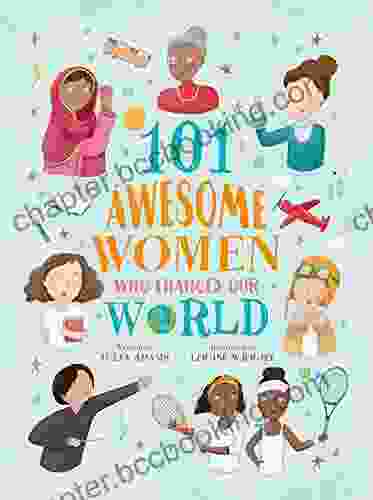
 Guy Powell
Guy Powell101 Awesome Women Who Changed Our World: A Celebration of...
Throughout history,...
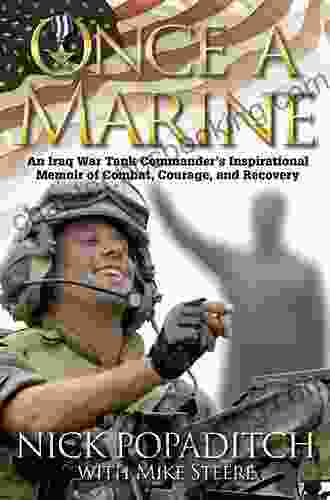
 Ashton Reed
Ashton ReedAn Iraq War Tank Commander's Inspirational Memoir of...
When he was just 19 years old, John Q....

 Dean Cox
Dean CoxLady Trader in the Transvaal: A Literary Safari through a...
Prologue: A Journey into the...
4.9 out of 5
| Language | : | English |
| File size | : | 1463 KB |
| Text-to-Speech | : | Enabled |
| Screen Reader | : | Supported |
| Enhanced typesetting | : | Enabled |
| Word Wise | : | Enabled |
| Print length | : | 267 pages |


